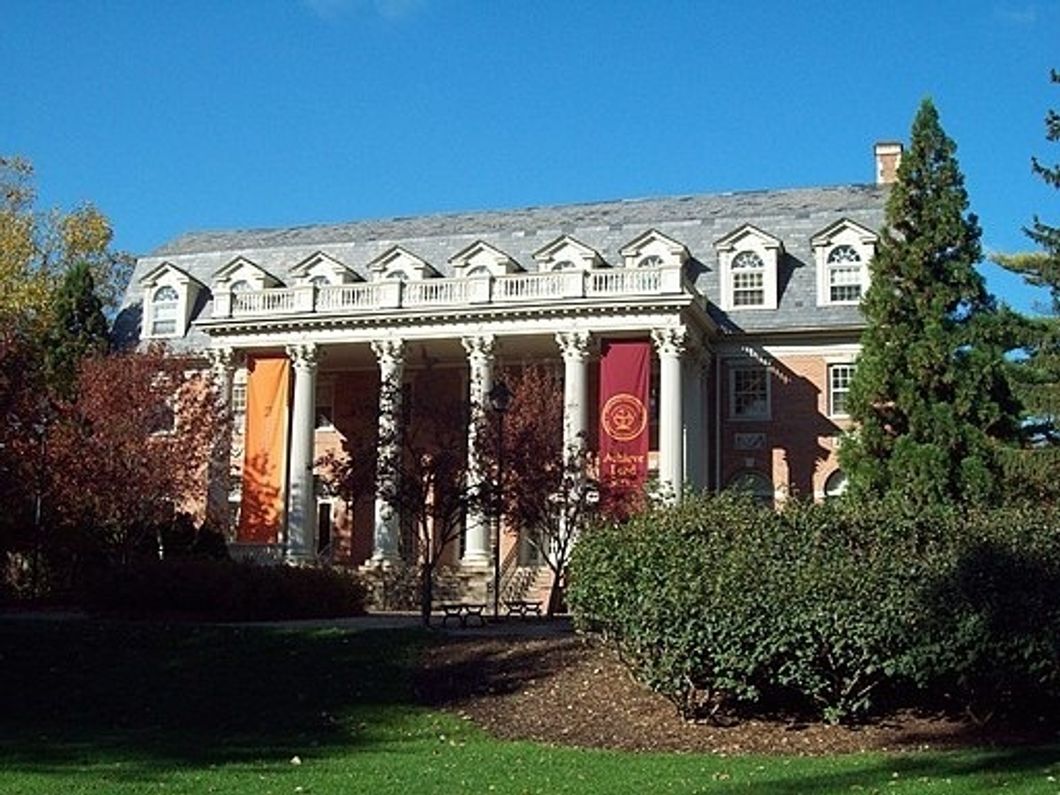Imagine this: it's the week before finals, every student has about 2 billion things going on in their lives, and campus is collectively losing its sanity day by day. Now imagine, in the midst of all this, every student receives an email at 8 o'clock on Monday night informing them of a change to campus security policies.
Imagine that change is the addition of armed officers to the squad of public safety officials who patrol campus. It is the last Monday night before finals and you suddenly, out of the blue, learn you will return to a campus with armed officers in the spring.
To me, at least, it is not necessarily the decision itself that angers me so much as how the decision was handled. No one I know had any knowledge this policy change was in discussion until after it was announced as a done deal. No warning, no message of intent, no chance for student input.
All we have is an email, a new public safety policy, some answers on the policy from the president and a fairly large number of angry students.
It didn't have to get to this point. Students could have felt as though they had input on important decisions that affect their campus lives, and maybe that input would have led to a more appreciated, less controversial policy decision.
So why didn't we have any chance to voice our opinions on the matter? Why were we not even told there was a chance, a distinct possibility that this could become the new norm for campus?
Why does it seem as though the students are always the last to know when things happen?
Students are the sole reason any university can exist. Without a student body, a university is nonexistent.
Colleges need their students. They depend on them to continue to exist. Colleges, then, should serve the students they so inherently rely on. And when colleges randomly announce decisions to their students and do little to offer further explanation or reasoning for that decision, they don't appear to serve their students.
We can argue the decision to arm officers itself all we want, and I expect many will continue to do so. But whether you agree with the decision or not, the fact that seemingly none of us were involved in its inception and approval is concerning for all of us.
If we as students aren't included in a decision with safety implications, what can we be expected to be included in? What else is being planned as we speak that we have no knowledge of and will have no say in?
It is hard, in this moment, to see that we will have the opportunity to be included in any conversations. The absence of the student body from discussion on this new Susquehanna policy sows distrust in that same body. It may have been unintentionally done, but the university has set the stage for a wave of distrust and disconnect between its administration and its students.
This isn't good for any of the parties involved. No college campus should feel like a divided and broken line between student and executive. If we are trying to be an inclusive campus, as we so often seem to claim, that inclusion needs to be a continuous process that extends to difficult conversations on controversial policy ideas.
Only time will tell what this does to the relationship between groups on this campus. In the future, though, I hope everyone can learn from this fallout and aim to include the student body in initiatives which directly impact their feelings of safety and security on what is supposed to be their second home.
Students are, after all, necessary for the university to exist.

















